ENEMIES OF ROME 7.1 - BOUDICCA - The Warrior Queen
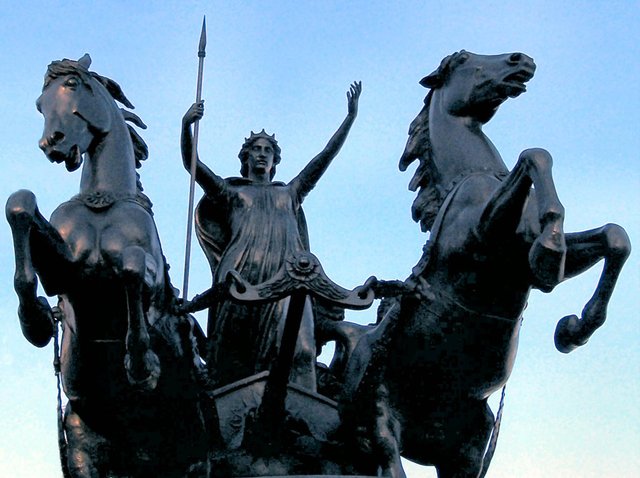
How Rome met Britain
The first Roman to ever set the foot on a British isle was undeniably Julius Caesar in 55BC. But his foray into a quasi-mythical island no one knew much about was only to make sure no tribe from there would try to meddle with his conquest of Gaul by providing weapon, money or men to his enemies.
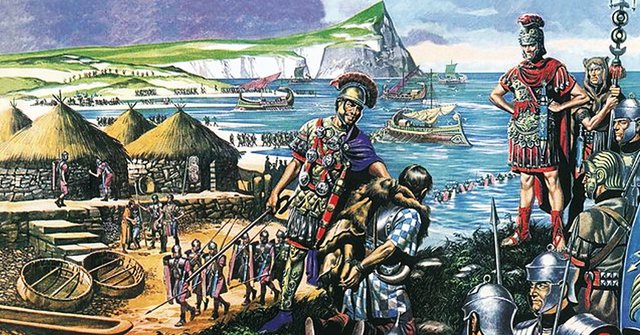
[Source]
In 43AD, it’s the Emperor Claudius who personally supervised the conquest of Britain - even going as far as taking the trip himself to the distant island, with a few war elephants. The declared goal was to help a local allied tribe, but the true reason was to take over the mines of the island.
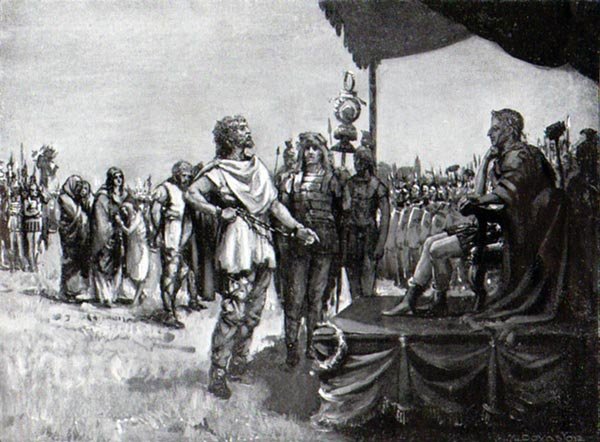
Claudius receiving the submission of Caratacus [Source]
In a few years, the Romans controlled most of the South and West of Britain, everything below the Fosse Way, which means that they controlled a territory as far as Lincoln in the north, Gloucester in the west and Exeter in the south-west.

[Source]
However, beyond that de facto frontier, the natives were mostly left to their own device - for the time being.
Economic slavery
For a few decades, the Romans and the local tribes coexisted peacefully, but just like in Gaul and Germania, the Roman could not help themselves: they had to abuse the locals, either financially or militarily, and make them subservient to their own system. Dio Cassius says:
An excuse for the war was found in the confiscation of the sums of money that Claudius had given to the foremost Britons; for these sums, as Decianus Catus, the procurator of the island, maintained, were to be paid back. This was one reason for the uprising; another was found in the fact that Seneca, in the hope of receiving a good rate of interest, had lent to the islanders 40,000,000 sesterces that they did not want,and had afterwards called in this loan all at once and had resorted to severe measures in exacting it.
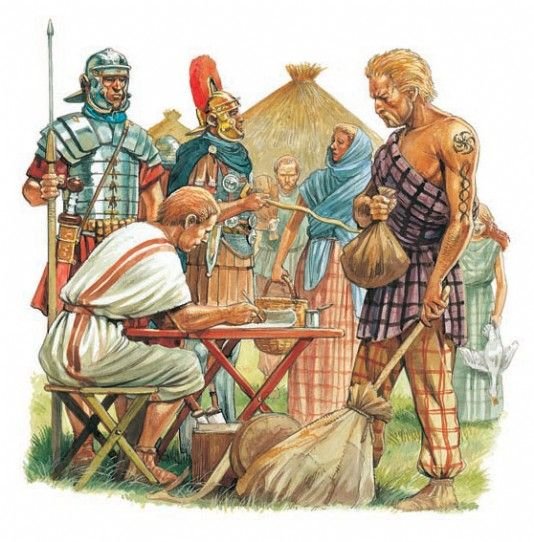
[Source]
It’s doubtful that the Britons had any clear idea about the complex financial schemes of the Romans, and they learned the hard way, when they discovered that the “gifts” were actually “debts”, and suddenly wealthy Romans came to collect their spoils with - no doubt - the backing of a legion. Losing their estate, their slaves, their money and above all their prestige, we can only imagine how the “foremost Britons” suddenly felt about their new overlords.
Genocidal conquest
In typical Roman fashion, the new Roman governor Suetonius Paulinus did not care one bit about the complains and the mumblings of the populace. His main concern was to push ahead with the agenda, and to bring into the fold as much territory as possible, not only for the sake of Rome, but also to bring glory to his own name, Dio Cassius describing him as:
a formidable competitor to Corbulo, and anxious to equal the laurels of the recovery of Armenia by crushing a national enemy.
That explains why, in 58, he set out with 2 legions, the bulk of the Roman forces in Britain, to attack the island of Mona (nowadays Anglesey, cf. map), which was a kind of last refuge for the tribes and the druides openly hostile to the Romans, where he let his troops loose on the population of old men, women and children without mercy:
reassured by their general, and inciting each other never to flinch before a band of females and fanatics, they charged behind the standards, cut down all who met them, and enveloped the enemy in his own flames. The next step was to install a garrison among the conquered population, and to demolish the groves consecrated to their savage cults.
However, as soon as it was done, Suetonius was greeted not by laudatory missives and promises of triumphs, but by the news that in his back, the whole island had exploded into revolt against the Romans, and was led by a woman called Boudicca.
To be continued...Sources:
http://penelope.uchicago.edu/~grout/encyclopaedia_romana/britannia/romanbritain.html
http://penelope.uchicago.edu/Thayer/e/roman/texts/tacitus/annals/14b*.html
http://penelope.uchicago.edu/Thayer/e/roman/texts/cassius_dio/home.html>
http://penelope.uchicago.edu/Thayer/E/Roman/Texts/Cassius_Dio/62*.html https://en.wikipedia.org/wiki/Fosse_Way
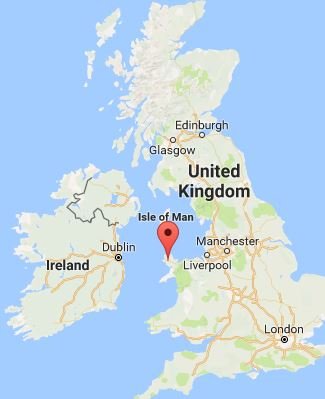
Good story, I'll wait all the chapters, nice work!
Thanks, @lola-carola!